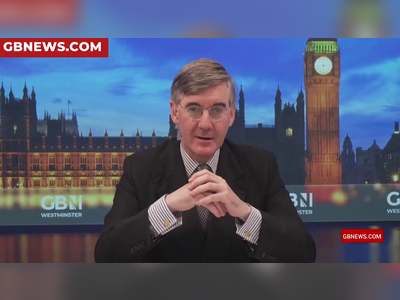
The workers leaving their dream jobs
At 25, Andrew was soaring up the culinary career ladder as a pastry chef at a Michelin-starred restaurant in Scotland. Every delicious dessert and finely-sculpted pastry in the kitchen was his creation. He was in a role that he had worked towards – and wanted – for years.
Andrew had reached these heights after just six years in the hospitality industry; he’d started at 19 as a kitchen porter in a local hotel in his hometown in west Scotland, and was quickly promoted to junior chef. By 21, he was a commis chef at an award-winning hotel in the Lake District, England, avidly studying patisserie and confectionary in his spare time. He was prepared to commit his life to perfecting his skills, saying: “That was all I cared about.”
Instead, at the height of his career, working in his dream job in the revered Scottish eatery, he quit. At 26, he was a student, this time on a four-year software-development degree. He’d walked away, not just from the job he’d worked so hard for, but from the whole hospitality industry.
For Andrew, the tipping point came when, having finally got the glossy position he’d been aiming for, he realised none of the exhausting work required was worth it. “From 19 to 25, that whole period of my life, I just sort of sacrificed,” he says. “Everyone else was out having a great time and I was basically a slave in the kitchen.”
Throughout his career, he realised, he had felt overworked, underappreciated and underpaid. “I was doing between 65 and 70 hours a week and getting paid [a salary of] £20,000 ($22,290) a year,” he says. “I was running the [pastry] section. I was creating the majority of the desserts… for £5.95 an hour. For that little money, you just think, what am I doing with my life? Like, am I crazy?”
For the most part, workers have always hoped for roles that coincide with their interests and passions; swapping the office grind for that longed-for sourdough bakery, or fun role at a videogame company sounds like a no-brainer. Yet this ‘do what you love’ narrative comes with drawbacks. Many people find that their dream jobs require more work, under worse conditions. Others discover that the industries they idolise trade on workers’ passions to keep pay low. In the face of these pressures, some workers find themselves asking whether the dream job is really worth it after all.
Passion versus pay
These days, more than ever, the idea that happiness and success are linked to working in a ‘cool’ job – a role you’re passionate about in an interesting, envy-inducing workplace – is omnipresent.
I decided that the money didn’t matter, which obviously it does – Andrew
“This kind of thing has been buzzing around for years now, but it became really transparent in lockdown, about following your passion and your dream job,” says Eleanor Tweddell, career coach and author of Why Losing Your Job Could be the Best Thing That Ever Happened to You.
According to a late-2020 poll from US freelance-marketplace Fiverr, 59% of the 2,000 Americans surveyed believed the Covid-19 pandemic had encouraged people to pursue their dream jobs. Most of the respondents, 71%, saw themselves going after their dream job one day, and 45% thought it was possible to do so full-time. But career redirections to get a dream job may not always work out as people hope, particularly if employers take advantage of their workers’ passions.
“Employees who love their job or really value their work are willing to put up with harsher conditions than others, such as non-standard working hours or low pay,” says Laura Giurge, an assistant professor of behavioural science at the London School of Economics and Political Science. “And to some extent, the employers might know this and thus ask those dedicated and passionate employees to take on additional work or abide by dreadful conditions.”
This practice of passion-exploitation is particularly prominent in creative industries; a 2019 survey showed most creative jobs in the UK – such as journalist, fashion stylist, musician and game designer – fell below the annual average salary. Unpaid labour is common: according to one 2020 survey of UK creative workers, 47% of under-30s said they had done an unpaid internship to secure their dream job. In the same study, 60% of under-30s said they hadn’t been paid for all the hours they’d worked in the past month. One 2019 study goes some way to explaining why this happens; the research found that people viewed treating workers poorly – such as asking employees to perform additional tasks or work more hours without pay – as more legitimate when workers were presumed to be passionate about their work.
Andrew says he recognised this phenomenon from the start in the hospitality sector. “They’re basically building their whole businesses on the back of exploitation of other people,” he says. Despite this early realisation, the passion he had for his craft kept him from walking away for years. “When I started back in the pub, my ambition was to get to that Michelin-starred level,” he says. “So, I decided that the money didn’t matter, which obviously it does.”
This initial disregard for financial security is something Tweddell sees often among her clients who are looking for a more fulfilling career. It’s often an attitude she has to coach them out of. “We do actually work for money,” she says. “There’s no shame in that. Most of us work because we need the money.”
So, instead of encouraging her clients into a risky career detour to become a sourdough baker, Tweddell asks them what they really want, not from their job, but from their lives. “A lot of people say, ‘I wanted freedom, freedom away from the nine-to-five.’ So, they got the cool job and they realised, ‘Oh my God, there’s no freedom here. I’ve got to work even harder to earn as much as I did before.’”
 Jobs in creative sectors, like the theatre, tend to pay less than the average salary
Jobs in creative sectors, like the theatre, tend to pay less than the average salary
For some people, she says, moving to more traditional employment and ditching the dream job can be liberating – something Josh Mansker experienced eight years ago.
Mansker spent four years in US theatres working as a lighting and sound designer, a career he was inspired to pursue after finding a community among the “theatre kids” in high school. But at 23, he became frustrated that he and others like him weren’t getting paid much. “I looked at colleagues that were in their 30s and 40s, and they were all really struggling financially, struggling to afford to have a family, which was something that was important to me,” he says.
Mansker made the difficult decision to leave his dream job behind and retrain. He now works in Toronto as a secondary-school teacher, and gets paid more than he ever earned in the theatres. “I get all the benefits of being a teacher and the great pay,” he says. “Teacher pay is usually pretty terrible, but in Ontario it’s not bad.” The job also syncs his work schedule with his wife’s, who is also a teacher, meaning the couple can spend vacation time during the summer together.
Why protections and structure matter
While it may sound zealous to call a nine-to-five job liberating, for some workers, a ‘normal’ job can provide the structure and support that their ‘cool’ job couldn’t.
This was the case for Adrian. After being laid off as a bank teller at the start of the pandemic, a friend helped her find a job in a cannabis dispensary in her home state of Maine, which has legalised medical and recreational cannabis. It’s an area she was interested in, saying: “I use cannabis myself. A lot of my friends do; it’s very much in our sphere.” And for a while she was happy, talking passionately to customers about cannabis and helping them find the products that, in some cases, were helping to treat a medical condition.
But some customers weren’t so pleasant to be around. “What really drove me away was multiple incidents with a customer sexually harassing me and the other female bud tenderers [dispensary retailers],” she says. “There wasn’t much done about it. They [her employers] wanted his money, so nothing happened to him.” Demoralised by this experience, and tired after two years of working long days and most weekends, Adrian found her way back to the world of retail banking, where she now feels more protected from such incidences and better served as an employee.
“Now, in banking, I have a very set schedule and better hours. So, I work from 0800 to 1600 and then I have every weekend off,” she says. “And PTO [paid time off] is another big thing. In the dispensaries, there’s no paid time off. If you’re sick, you don’t get paid for that day. There were no benefits, none. The benefit was free weed whenever it came, which wasn’t super often.”
 Just because a job is in an area you're interested in doesn't necessarily mean the conditions and benefits will be good
Just because a job is in an area you're interested in doesn't necessarily mean the conditions and benefits will be good
How to let go of the dream
For Adrian, it took two years to leave the industry she was passionate about. For Mansker, it took four. For Andrew, six. Making such a drastic career leap can take time, and the prospect of re-training can be terrifying. And, on a personal level, workers can struggle to dissociate themselves from their jobs. Without a ‘cool’ career, who are they?
“Adults spend the majority of their waking hours at work and so it’s not surprising to me that people can come to equate what they do with who they are,” says Laura Giurge. And it can be particularly hard to discard a professional identity when it is so intertwined with a worker’s interests and passions.
But if a person can recognise themselves as more than just their job title, their new ‘less interesting’ career doesn’t have to be the end of their passion, as Mansker happily discovered. “I have sort of taken over the theatre tech of the school here,” he says. “There’s some theatre equipment; I’ve got a bunch of cameras … I get to teach kids the stuff that I love to do.”
While Andrew rarely makes pastries or desserts in his own time – the smell of a bakery still nauseates him – his newfound career as a software programmer affords him time in the evenings and at weekends to pursue his other passions. “Last year, I started playing football again, and a few months ago I joined an 11-a-side team,” he says. I finally got a job where I can actually do things that I enjoy.”
Now 31, free from hospitality, on a rapidly rising wage and finally well rested, Andrew’s keen to coach others out of the ‘passion trap’ he found himself in. “If you’ve had enough and you want to change, then you can... If you want to make a change, just do it, because you won’t regret it.”











